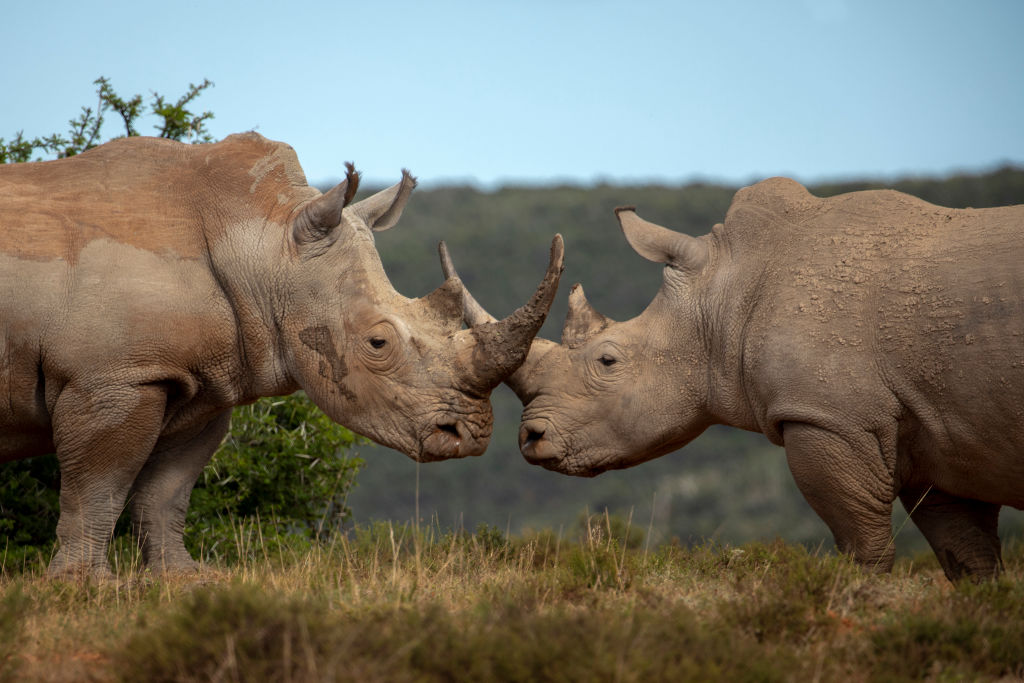“Environmental protection and the rule of law must walk hand in hand.” This is the spirit, as I described, captured by the newly agreed Cape Town Declaration on Crimes that Affect the Environment, signed by the G20 environment and climate ministers who gathered in South Africa in October. But this is more than just an agreement. These words express a truth: justice for people and justice for the planet are not separate causes. They are one and the same.
[time-brightcove not-tgx=”true”]
Environmental crime has often been seen as a fringe concern. Yet the illegal wildlife trade, deforestation, waste trafficking, and illegal mining are organized criminal economies. They strip nations of their wealth, rob communities of livelihoods, and weaken the authority of the state. They feed corruption and erode public trust.
The G20 has now recognised that these crimes are not side issues. They are central to global stability and security. The Cape Town Declaration places them on the main stage of international cooperation for the first time. It calls for stronger laws, joint enforcement, shared intelligence, and fair finance to close the space in which these crimes occur. It is a statement that crimes against nature are crimes against people, and that enforcement must match the scale of the damage being done.
In a testament to the growing concern around these issues, on Nov. 4, 18 governments, with the support of relevant international organizations and civil society organizations, endorsed a ministerial declaration to take bold, coordinated action against environmental crime, marking a major step forward in global environmental governance. The Rio Declaration on Crimes that Affect the Environment was endorsed during the Royal Foundation’s United For Wildlife Global Summit hosted in Brazil ahead of this year’s United Nations COP30 climate summit. The declaration carries forward the same principle that began in Cape Town: that nations can act together when guided by fairness, evidence, and moral purpose. The link between the two declarations shows the world that multilateralism can still work when driven by honesty and shared responsibility.
For South Africa, this shift is not abstract. It speaks directly to our own experience. Our country is rich in biodiversity, but that richness has made us a target. Along our coasts, abalone poaching has become a global criminal enterprise. It strips our oceans bare and destroys the livelihoods of coastal communities. In our parks, rhino horn and ivory trafficking continues to fuel violence and corruption. Across our veld, captive-bred lions are raised for commercial hunting, reducing living creatures to commodities.
These are not legacies worth defending. They are systems that must end. Guided by science and upheld by law, South Africa supports conservation models that are based on evidence and that benefit communities, but never those that turn wildlife into profit at the expense of their survival.
Each of these reforms reflects a singular idea: that the rule of law must defend the natural world with the same strength it defends people.
The Cape Town Declaration, together with the Rio Declaration, marks a turning point. These declarations show that global cooperation is still possible and that the environment now sits beside the economy and security as a pillar of international governance.
But agreements alone are not enough. They must be enforced. The rule of law must be seen and felt in the field, at sea, and across borders. It must hold traffickers accountable and protect those who defend nature, often at great personal risk. It must bring justice to the communities that suffer the cost of environmental crime and ensure that those who profit from destruction face the consequences.
The path between Cape Town and Rio shows what can be achieved when nations act with integrity and urgency. Across the world, countries are reforming laws, building coalitions and sharing intelligence. Law enforcement agencies are closing in on networks once thought untouchable. Civil society, business, and local communities are beginning to align their efforts. The system is starting to work as one.
For South Africa, this is both a global responsibility and a national renewal. As we align our domestic reforms with our international commitments, we are proving that good governance and environmental stewardship strengthen each other. Both serve the same purpose: to create a society that is just, secure, and sustainable.
The Cape Town and Rio Declarations are not the end of this work but the beginning of it. They remind us that the law is not only a tool of order but a force for fairness. When the rule of law defends the environment, it defends the very basis of human life.
Environmental protection and the rule of law must walk hand in hand. When they do, we restore the balance between nature and justice, and we keep faith with the generations still to come.

